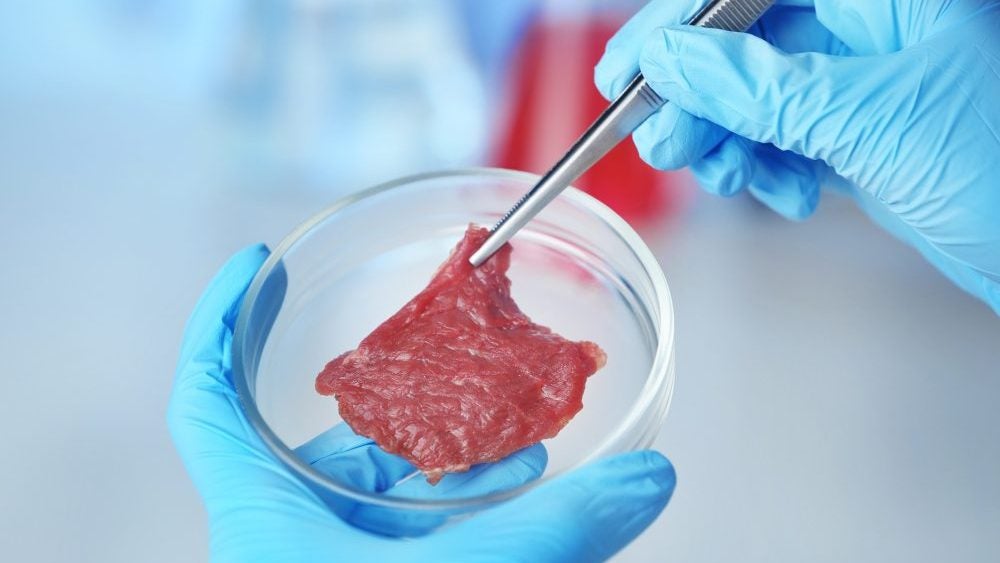
Italy has banned the production, sale and import of cultivated meat under a bill first proposed in March.
Approved by Italy’s Chamber of Deputies, or the lower house of parliament, yesterday (16 November) the bill now needs to go before the European Union for final sign off.
“With this government, you will never put synthetic food on the tables of Italians,” Francesco Lollobrigida, the Minister of Agriculture, Food Sovereignty and Forestry, posted on Facebook, calling the ban a “brave measure, asked by citizens with millions of signatures that puts Italy at the forefront of the world”.
The new regulation also bans the use of meat names from products not derived from animals such as ‘steak’ or ‘salami’, according to the European division of the Good Food Institute (GFI). The non-profit advocate for plant-based and cell-cultured protein alternatives said fines of up to €60,000 ($65,226) can now be imposed on those violating the rules.
“Eliminating the possibility of using familiar terms to facilitate product recognition undermines transparency, generating confusion for consumers where none currently exists,” Francesca Gallelli, the public affairs consultant at GFI Europe, wrote in a reactionary statement.
Gallelli added with respect to lab-grown meat: “This bill not only deprives consumers of choice but also isolates Italy from the investment and job creation offered by this burgeoning industry.
How well do you really know your competitors?
Access the most comprehensive Company Profiles on the market, powered by GlobalData. Save hours of research. Gain competitive edge.

Thank you!
Your download email will arrive shortly
Not ready to buy yet? Download a free sample
We are confident about the unique quality of our Company Profiles. However, we want you to make the most beneficial decision for your business, so we offer a free sample that you can download by submitting the below form
By GlobalData“The debate surrounding cultivated meat in Italy has been fuelled by misinformation, as hearings in the Senate intentionally excluded cultivated-meat companies and supporters while allowing false claims from opponents of this sustainable food.”
Final approval of the bill had stalled in October as the Italian government withdrew from the so-called EU scrutiny process to ban the products and the use of cell-cultured proteins in animal feed.
A transcript of an interview given by Minister Lollobrigida to Italy’s TG1 broadcaster yesterday was posted on his department’s website.
“We protect our food, our food system, to maintain the relationship between food, land and human work that has accompanied us for millennia, guaranteeing the quality that Italy expresses and which is the expression of food safety for the whole planet.
“Synthetic food, grown far from our traditions, does not guarantee this principle,” Lollobrigida said.
He added: “This food is currently not permitted in Europe and has not been tested and tested adequately. We are optimistic that the Union will reject the possibility of producing, importing and marketing it.”
In a statement posted on the website of the Ministry of Agriculture, Food Sovereignty and Forestry on Wednesday, Lollobrigida claimed a petition against permitting the supply of cultivated meat in Italy, and its ban, had garnered more than two million signatures.
Lollobrigida quantified those signees as “institutional representatives of all the parties present in Parliament, more than three thousand agendas of the municipalities, and twenty regions of every political colour”.
The minister continued: “We hope that the Italian example will be followed at a European level, with the same model with which it was chosen to avoid GMOs on the continent.”
Gallelli at GFI countered: “We welcome the intention of the government to submit the law to the EU scrutiny and we hope member states can voice their concerns regarding its potential violation of the single market.”






